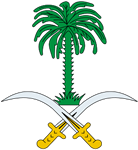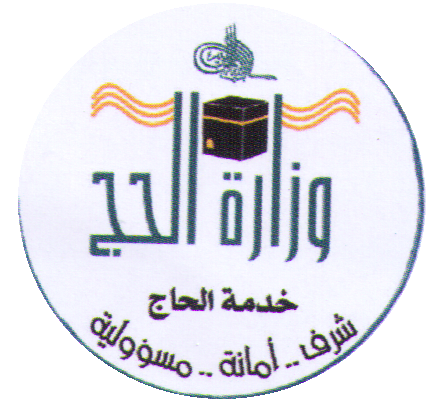


Rules and Regulations Governing the Carriage of Pilgrims by Air
For a pdf version of this document, click here
Every year, approximately (1,500,000) pilgrims travel by air to the Holy Places in the Kingdom of Saudi Arabia. The role of the Kingdom of Saudi Arabia is to use all possible efforts and measures to facilitate the proper atmosphere and provide for the pilgrims convenience and safety in conformity to Article (24) of the Fundamental Government Regime issued by the Royal Decree (A/90) dated 27/8/1412H, which states that: "The Government is obliged to improve and modernize the infrastructure and facilities of the two Holy Mosques and provide quality services and security for the sake of the Guests of Allah in order to perform their Hajj and Umrah safely."
In light of the instructions of the Custodian of the Two Holy Mosques, His Royal Highness Crown Prince and Deputy Prime Minister and Minister of Defense and Aviation and General Inspector, all governmental and private sectors function together to ensure pilgrims convenience and safety in both in-bound and out-bound phases. Since airports are the starting point to serve the traveling pilgrims, the Presidency of Civil Aviation has made the necessary arrangements for pilgrims starting from the embarkation process to the disembarkation and acting side-by-side with the rest of the governmental systems.
In accordance with the leadership's directives to offer the pilgrims, who are the "Guests of God", the best services and to provide them with all attention and convenience to enable them to fulfill their religious duties with ease and in comfort and return to their countries safely, Presidency of Civil Aviation (PCA), together with other concerned national and government agencies, has the responsibility and honor to implement the following directives. PCA undertakes to make the necessary arrangements to receive these pilgrims arriving by air at King Abdulaziz International Airport (KAIA), their first point of arrival in the Kingdom.
On basis of higher authority directives, these rules and regulations are formulated to organize the air transport operations to serve the pilgrims and further to ease and simplify procedures related to their arrival and departure in a safe, secure and regular fashion.
The regulations stipulate the procedures and actions required for submission of operation requests as well as the measures regulating these applications. It also includes flight scheduling, slot allocation and other related approvals. Moreover, it contains the basic operational and safety requirements need to be fulfilled for obtaining the required operation permission.
These rules and regulations also define the technical measures and operational provisions applied on all flights either operated by an aircraft fully owned by the air carrier or a leased aircraft.
However, other technical measures and additional provisions are incorporated to regulate other air carrier only operating (Charter) Hajj flights. Safety standards, general rules and more provisions are provided to define the scope of air operation as well as the commensurable fines to be imposed against the occurrence of any violation.
Consideration is given in compliance with the Chicago Conventions rules and principles together with other international treaties, other issued governmental instructions and relevant bilateral air transport agreements concluded between the Kingdom and other States, as well as the contents of the Kingdom Aeronautical Information Publication (AIP) related to air operation instructions.
To meet the above objectives, PCA in coordination with other related entities are looking forward to maintaining a safe regulated air traffic flow, smooth passenger processing and most importantly to avoid over-capacity pressure on KAIA facilities.
To ensure the smoothness and efficiency of Hajj air traffic and other services, PCA has undertaken to authorize a certain number of Hajj flights per hour, distributed evenly throughout each 24-hour period. The flight schedules, as outlined in the following instruction, submitted by the airlines will result in slot allocations being assigned for each flight for both the inbound and outbound phases.
A review of previous Hajj traffic operations has shown that certain procedural and operational changes are necessary. Therefore the 1426/2005 Regulations and Rules of Pilgrims Air Transportation include all necessary arrangements to secure the return of pilgrims to their respective home countries. Fines shall be imposed on the air carrier in case of violation.
Compliance with the regulations is mandatory and any air carrier must conform to the outlined rules, otherwise appropriate measures and penalties shall be imposed against the violator. Air carriers may be subjected to final exclusion and discontinuance of its operation to and from the Kingdom in the future, if non-compliance with on time returning of Hajj passengers is observed or in cases of failure to submit the required passengers manifest.
In this regard, PCA circulates to all concerned parties these rules and regulations for the year 1426 AH (2005-06) Hajj program that define the scope of responsibility of Hajj air carrier, their general sales agencies in the Kingdom and other charter operated Hajj flights and handling agencies for full adherence and compliance.
These provisions may be implemented at King Abdulaziz International Airport and at Prince Mohammed bin Abdulaziz Airport at Al-Madinah Al-Munawwarah and any other airport declared for operation as a Relief Airports by the Government of the Kingdom of Saudi Arabia.
- Application Requirements
- Flight Scheduling and Slot Allocation Procedures
- Technical Measures and Conditions Governing Air Operations Applied on all Flights
- Technical Conditions/ Requirements Pertaining to Air Safety and Standards Regulating Air Operation
- Important PCA Requirements
- Additional Technical Conditions Applicable to Air Carriers Operating Only Hajj Charter Flights
- General Terms and Conditions
- Penalties for Violation
Main reference point: